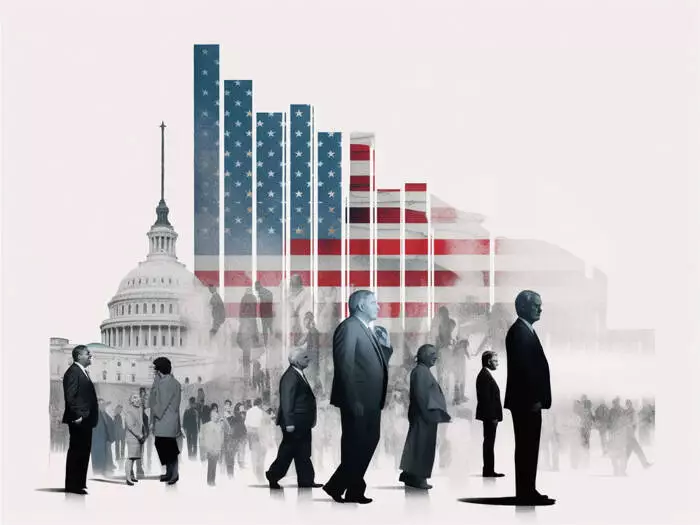The political betting market is undergoing a tumultuous phase, plagued by credibility issues and vulnerabilities. A recent incident involving a French trader who made multi-million-dollar bets on Donald Trump’s contracts across various Polymarket accounts has cast a long shadow over the integrity of these trading platforms. Although no overt wrongdoing was uncovered, the situation has raised alarm bells regarding the potential for market manipulation in a space that already suffers from limited oversight and liquidity. This lack of regulation and resilience invites questions about the reliability of predictions made within such markets, as investors grapple with uncertainties about their investments.
Beyond the immediate controversies in political betting, established financial minds like Paul Tudor Jones are sounding the alarm over grave economic concerns that could overshadow electoral outcomes. With the U.S. federal deficit expected to hit an alarming $1.8 trillion in 2024, Jones cautions that the real threat extends beyond who wins the election. He warns of a potential crisis in the bond market that could lead to an explosive rise in interest rates, a scenario that could wreak havoc on the broader economy. Such a view emphasizes that neither of the primary candidates has demonstrated an ability to manage such staggering fiscal pressures effectively, a reality that investors must take seriously amid their election betting strategies.
Jones references the concept of a “Minsky moment,” which denotes a sudden collapse in markets spurred by unsustainable financial practices. His prediction of rising volatility in long-term bonds suggests unease about the U.S.’s fiscal future, especially as post-election realities loom large. These increasingly challenging economic conditions may force difficult decisions upon Washington, such as abolishing tax cuts implemented during Trump’s administration or enacting significant spending cuts to address the mounting debt crisis. Such potential policy shifts will undoubtedly complicate the political landscape, directly affecting the logic behind political betting markets.
As Robinhood introduces its election contracts, participants find themselves in a grey zone where the outcomes of political betting intertwine with deep-rooted economic issues. Investors are confronted with a dilemma: the enticing allure of capitalizing on political speculation must be weighed against the looming economic headwinds that could reshape the investment climate entirely. The intertwining nature of election dynamics and fiscal health crafts a complex environment that demands careful navigation.
A New Era of Decision-Making
Market participants must now recognize that the individual who ultimately captures the presidential seat may not be able to deliver the solutions they promised, especially when confronted with a reality so influenced by chronic fiscal problems. The intersection of political betting and serious economic challenges offers a unique lens through which to understand contemporary America—a nation at the crossroads of democratic decision-making and economic constraints. This evolving landscape signifies that the paths chosen in both politics and investments will require a careful balance of immediate gains with long-term sustainability, making for a uniquely fraught period on all fronts.


Leave a Reply